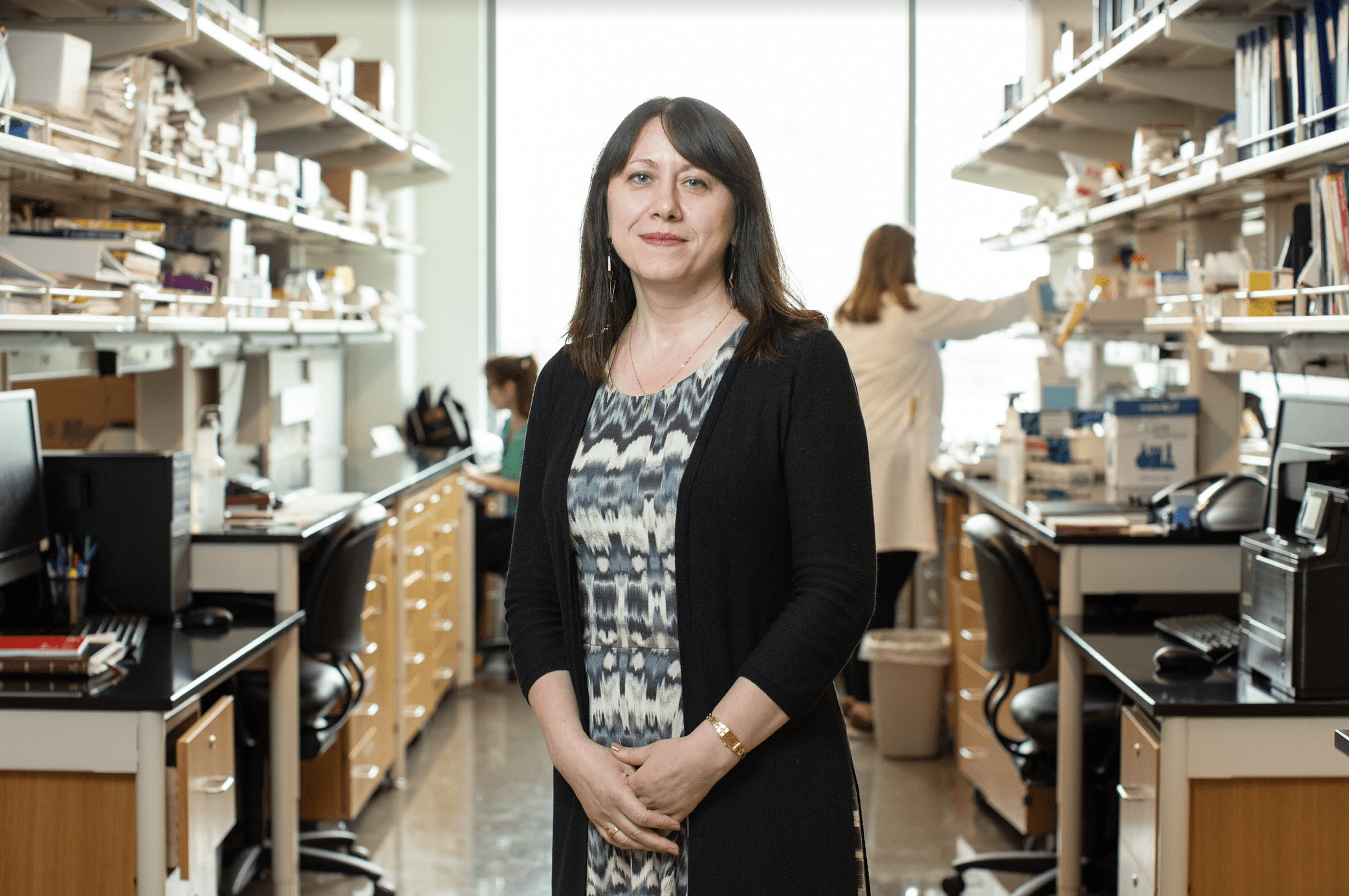“Cancer is a leading cause of premature death worldwide, and its burden is expected to grow,” says School of Public Health faculty member and world-renowned tobacco researcher Irina Stepanov. “Of course, significant advances have been made in treating certain types of cancer, but such treatments can be very aggressive, and many cancers still have only a few percentage points of survival. We have to make more progress in preventing cancer in the first place.”
Stepanov’s commitment to preventing cancer around the world and her pioneering work to build global cancer research capacity are significant reasons why she was recently named a Distinguished McKnight University Professor, one of the University of Minnesota’s highest honors. Stepanov will hold the title for as long as she remains at the University and her name will be added to the Scholar’s Walk.
In Stepanov’s laboratory, she uses cutting-edge chemistry techniques and develops novel methods to identify biomarkers that signal exposure to environmental toxicants and carcinogens, investigate how carcinogens metabolize and damage DNA to gauge a person’s cancer risk, and monitor the level of such harmful chemicals in traditional and emerging tobacco products. She trains students, guides her research staff, and engages in transdisciplinary collaborations to inform tobacco control and other cancer prevention policies and practices.
One result of the lab team’s work was giving the Food and Drug Administration the necessary facts to propose a first-of-its-kind rulemaking to reduce the level of NNN — a chemical that can cause oral cavity and esophageal cancer — in smokeless tobacco products. Stepanov’s group also discovered that while e-cigarettes contain virtually no NNN, it can form in an e-cigarette user’s body when they take in nicotine through the device. In another line of collaborative research, her group revealed higher exposures to cadmium and other carcinogenic compounds in smokers who are Black compared to white smokers. These findings suggest that, in addition to smoking, there are other environmental or occupational sources that may elevate lung cancer risk in Black smokers.
“With her work to prevent cancer, Dr. Stepanov has taken on one of the world’s biggest challenges,” says SPH interim dean Timothy Beebe. “By naming her a Distinguished McKnight University Professor, the University not only honors her innovative and successful research, but also her dedication and devotion to preventing cancer around the world. We are very lucky to have Dr. Stepanov at the School of Public Health.”
Stepanov is particularly troubled that, in the U.S. and worldwide, the burden of cancer falls disproportionately on populations that are already carrying the weight of socioeconomic disadvantages and environmental and psychosocial stressors. To address this challenge, Stepanov envisioned an ambitious program that would build global research capacity to inform cancer prevention in those populations. In 2021, with initial funding from the Masonic Cancer Center, Medical School, and School of Public Health, Stepanov, working alongside her longtime collaborator U of M Professor Dorothy Hatsukami and a few other colleagues, launched the Institute for Global Cancer Prevention Research. The institute will focus on growing national and international partnerships and research capacity and translating research findings into prevention practices and policies. It will target its efforts towards low- and middle-income countries, as well as immigrant communities locally.
“Public health is a highly collaborative field, and throughout my career I have been really fortunate to work with exceptional researchers,” says Stepanov. “This award will further support our work towards achieving equity in cancer prevention and control on a global scale.”
Learn more about Irina Stepanov:
- New Institute Poised to Advance Global Cancer Research and Prevention
- University of Minnesota team announced as finalists for worldwide Cancer Grand Challenges
- Cigarettes marketed as “natural” and “organic” are loaded with nicotine and toxicants, just like other cigarettes
- Cancer-causing Chemical Formed in E-cigarette Users

